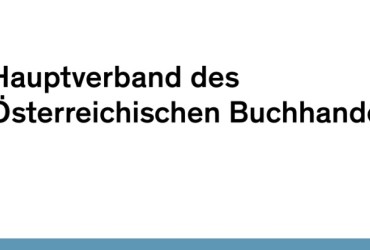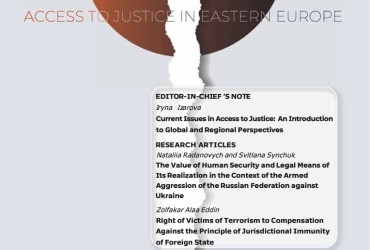
Apr
AJEE Collection of Articles on Small Claims
Small Claims Procedure is one of the most controversial ways to make the court affordable and access to justice equal for all.
In this collection we include the most read articles on small claims which were published in AJEE:- The EU schemes of Small Claims by Elisabetta Silvestri;
- Ukrainian Small Claims Procedure by Nazar Panych;
- Difficulties of translation of the notion ‘Small Claims’ by Yuliia Baklazhenko;
- Small Claims Procedure in Poland;
- Proposal for the EU Online Small Claims Procedure by Lurdes Varregoso Mesquita and Catia Marques Cebola
Small Claims and Procedural Simplification: Evidence from Selected EU Legal Systems by
Elisabetta Silvestri
Most legal systems have a long-standing tradition of simplified procedures for the disposition of small claims. Obviously, the elements that qualify a claim as vary: the most significant one, meaning the amount of money at stake, reflects the economic situation of a given country. In any event, and regardless of the maximum sum that can be recovered, small claims are the claims that are most important to ordinary citizens. For if people had to turn to full-fledged litigation, probably many would relinquish their rights, being unable to bear the costs and the delays of a traditional judicial procedure. That is the reason why legal systems should provide inexpensive and expedited procedures for small claims if they really want to fulfil the promise of access to justice for all.
Access to Justice as Illustrated by the Institute of Small Claims: an Assessment of the Procedural Law Reform in Ukraine by Nazar Panych
On 15-16 October 1999, a meeting of the European Council, whose influence on the development of civil process in the EU cannot be overestimated, took place in Tampere. It was at this meeting that the need was declared to develop and implement the EU level rules of procedure, which should simplify and accelerate cross-border litigation (within the EU). As a result, the Regulation (EC) No 861/2007 of the European Parliament and the Council of 11 July 2007 establishing a European small claims procedure was adopted. On the basis of this Regulation, the European legislators sought to introduce a small claims procedure directly in the EU. However, their intentions and efforts have also become the guideline for legislators of those states that (so far) are not members of the EU, in particular, Ukraine. In more than a decade, the institute of small claims has found its consolidation in the reformed civil process of Ukraine, an associate partner of the EU. In this context, the question arises: have the goals and results of the institutes' implementation coincided within the law of the EU and Ukraine? Is there a positive experience of such an introduction and does this institute need further reforms? This publication is an attempt to provide answers to these questions.
Ukrainian-English Translation of Legal Terms: A Case Study of Insignificant Cases and Small Claims’ by Yuliia Baklazhenko
The article is devoted to the problem of translating legal terms from Ukrainian into English on the basis of a case study of a newly-coined term in Ukrainian legislation – ‘maloznachna sprava’. The relevance of the topic of legal translation from English into Ukrainian and vice versa has become especially acute in light of the Ukraine-EU approximation agreement. The author emphasises the necessity to perform concept analysis between the terms in the EU and Ukraine simplified procedures and comes to the conclusion that despite having surface similarity to the EU term ‘small claim’, the Ukrainian term ‘maloznachna sprava’ is, in fact, a much wider concept. A range of translations of legal neologisms are described in the article, and the need to use a literal translation of the term is substantiated. As a result of the analysis of possible translation options and the ECtHR translation precedent, it is recommended that the term ‘maloznachna sprava’ should be translated as ‘insignificant case’ within the sphere of Ukrainian civil procedure
European Small Claims Procedure and Its Place in the System of Polish Separate Proceedings by Joanna May and Małgorzata Malczyk
The European proceedings in cross-border cases, to which the European order for payment and the European Small Claims Procedures belong, were introduced into Polish legal system on 12 December 2008 as an alternative to the existing proceedings provided for in the laws of the Member States. The base for the application of the European Small Claims Procedure is Regulation (EC) No 861/2007 of the European Parliament and of the Council of 11 July 2007, establishing the European Small Claims Procedure.
The Polish legislator decided to place a modest regulation of these procedures amongst separate proceedings. To approximate the subject issue, the nature of the European Small Claims Procedure needs to be considered along with its relations with selected separate proceedings (such as order for payment proceedings, writ of payment proceedings, electronic writ of payment proceedings, simplified procedure and European order for payment procedure), the nature of which justifies including them in the group of accelerated and simplified proceedings.
European Small Claims Procedure: An Effective Process? A Proposal for an Online Platform by Lurdes Varregoso Mesquita and Catia Marques Cebola
Statistics concerning the use of the European Small Claims Procedure implemented by Regulation 861/2007 (as amended by Regulation 2015/2421) show that this mechanism has not been as successful as expected. When choosing between a domestic and a European instrument, the creditor most often opts for the domestic procedure. They avoid an instrument that is less well known, that they do not fully manage, and that has limited integration in domestic law.
This article starts with the legislative analysis of the European Regulation 861/2007, using analytical and hermeneutic approaches. Empirical methodologies will also be applied since the practical application of the rules established by the European Regulation will be analysed in order to build the proposal of an online platform for the small claims procedure.
Bearing in mind the weaknesses of the European Small Claims Procedure, we conclude that an online platform incorporating alternative dispute resolution mechanisms is the best option to promote access to justice. A list of arbitrators or judges designated by each member state to decide the cases submitted on the platform could be a solution to overcome lengthy court processes. The decision shall be standardised for all proceedings according to a model incorporated into the platform. Thus, the enforceability will be facilitated, and the process will be more accessible to the parties, ensuring the right of access to justice in this context.



